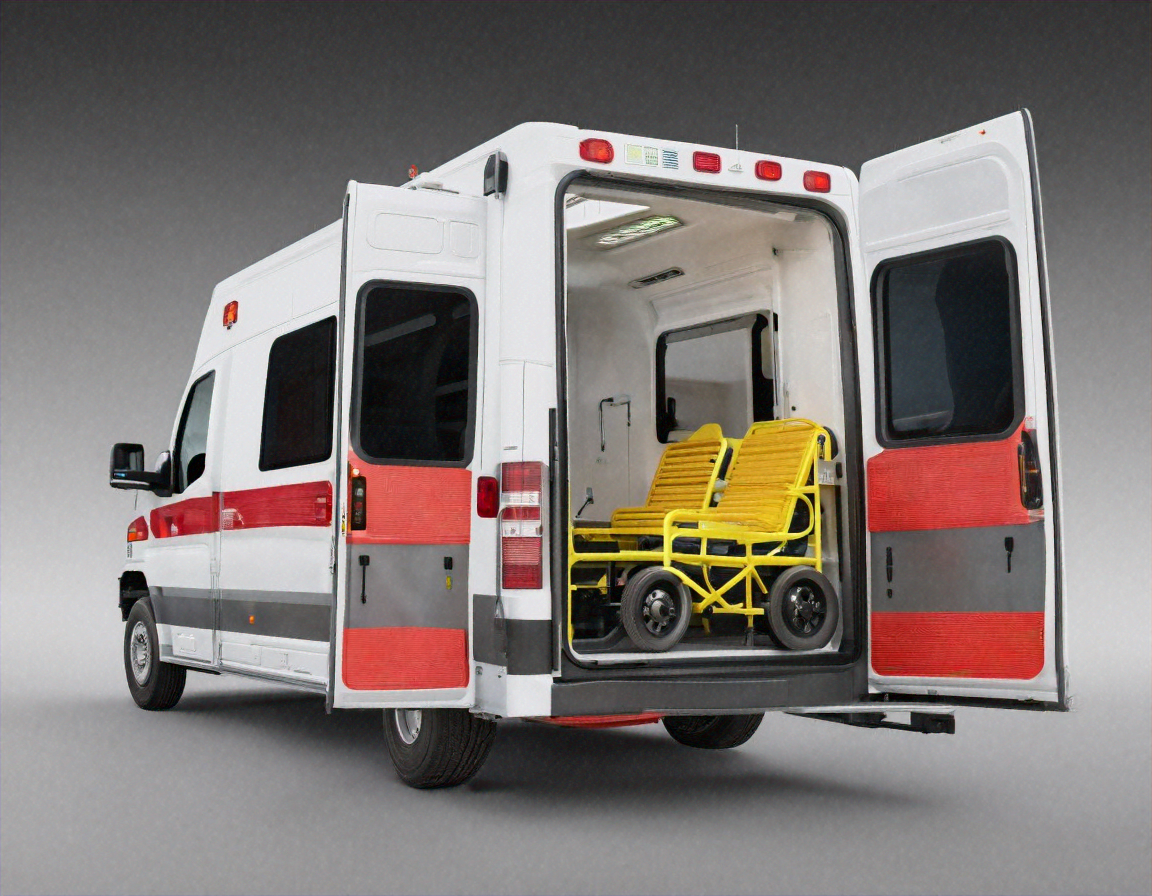Private Ambulance Services for Non-Emergency Medical Transport
Private ambulance services provide non-emergency transportation for individuals who may need help getting to or from medical appointments, care centers, or between health facilities. These services are designed for those who may not require emergency care but still need support during transit due to health conditions, mobility challenges, or ongoing treatments. Private ambulance transport may be scheduled in advance and typically involves trained personnel and equipped vehicles for added assistance and safety.

Understanding Private Ambulance for Non-Emergency Transport
Private ambulance services for non-emergency transport differ significantly from their emergency counterparts. These services are specifically designed for scheduled, non-urgent medical transportation needs. Patients who cannot safely travel by conventional means due to medical conditions, mobility limitations, or who require monitoring during transport benefit tremendously from these services. Private ambulances are equipped with necessary medical equipment and staffed by trained professionals who can provide appropriate care during transit, ensuring patient safety and comfort without the urgency and cost associated with emergency transportation.
The vehicles used for non-emergency medical transport are specially outfitted to accommodate various patient needs, including wheelchair accessibility, stretcher capabilities, and basic medical monitoring equipment. Unlike emergency ambulances that prioritize speed and urgent intervention, these vehicles emphasize comfort and stability during transport, making them ideal for longer, scheduled journeys between healthcare facilities or to and from medical appointments.
Medical Transfers Between Care Locations Available
One of the primary functions of private ambulance services is facilitating transfers between healthcare facilities. This includes transporting patients from hospitals to rehabilitation centers, nursing homes, specialized care facilities, or even to their residences. These inter-facility transfers require careful coordination to ensure continuity of care throughout the journey. Private ambulance providers work closely with healthcare facilities to understand specific patient needs, medication requirements, and any special considerations necessary during transport.
Medical transfers may be necessary for various reasons, including:
-
Patients requiring specialized treatment not available at their current facility
-
Individuals who have completed acute care but need continued rehabilitation
-
Patients returning to long-term care facilities after hospital treatment
-
Transfers to facilities closer to family members for ongoing recovery support
The seamless coordination between healthcare providers ensures that patients receive appropriate care throughout the transfer process, maintaining medical stability while in transit.
Scheduled Rides for Recurring Treatment Visits
For patients with chronic conditions requiring regular treatments like dialysis, chemotherapy, or physical therapy, private ambulance services offer reliable, scheduled transportation solutions. These recurring appointments are essential to patient health, but transportation can present significant challenges, especially for those with limited mobility or medical needs that make conventional transportation difficult or impossible.
Private ambulance providers develop customized transportation plans for patients with recurring medical appointments. This consistency of care offers several advantages:
-
Patients build rapport with the same transportation team, reducing anxiety
-
Medical staff become familiar with the patient’s specific needs and conditions
-
Scheduling becomes streamlined, reducing missed appointments
-
Care during transport can be tailored to the patient’s known requirements
These scheduled services help ensure that patients maintain their treatment regimens without transportation barriers, ultimately supporting better health outcomes and quality of life.
Supportive Transport with Trained Ambulance Staff
What truly distinguishes private ambulance services is the level of care provided by trained medical personnel during transport. Unlike taxi services or standard patient transport vans, private ambulances are staffed by emergency medical technicians (EMTs), paramedics, or other healthcare professionals trained to monitor patients and respond to medical needs that may arise during transport.
These professionals are equipped to:
-
Monitor vital signs and patient condition throughout the journey
-
Administer prescribed medications when necessary
-
Provide oxygen therapy or other basic medical interventions
-
Assist with patient positioning, transfers, and mobility
-
Communicate with receiving healthcare providers about patient status
This specialized care ensures that patients with complex medical needs can travel safely between locations with appropriate monitoring and support, significantly reducing risks associated with transportation for medically vulnerable individuals.
Transportation Services Beyond Traditional Emergency Care
Private ambulance services have evolved to meet diverse healthcare transportation needs beyond emergency response. These expanded services include bariatric transport for patients with weight-related mobility challenges, neonatal transport for infants requiring specialized care, and even long-distance medical transport across state lines or internationally. By addressing these specialized needs, private ambulance providers fill crucial gaps in the healthcare transportation ecosystem.
Additionally, many private ambulance companies offer standby services for events where medical support might be needed, including sporting events, concerts, and other large gatherings. This preventive approach ensures immediate access to medical transport if required, supporting community health and safety beyond traditional emergency response.
Private Ambulance Service Providers and Cost Considerations
Several national and regional providers offer non-emergency medical transport services, with varying levels of medical support and pricing structures. Insurance coverage for these services depends on medical necessity, provider networks, and specific plan details.
| Provider | Service Level | Average Cost Range | Insurance Acceptance |
|---|---|---|---|
| AMR (American Medical Response) | Basic to Advanced Life Support | $400-$1,200 per transport | Most major insurers, Medicare with qualification |
| Falck | Basic to Critical Care Transport | $450-$1,500 per transport | Medicare, Medicaid, most private insurers |
| Acadian Ambulance | Multiple service levels | $350-$1,400 per transport | Medicare, most major insurance plans |
| Local/Regional Providers | Varies by location | $250-$1,000 per transport | Varies by provider |
Prices, rates, or cost estimates mentioned in this article are based on the latest available information but may change over time. Independent research is advised before making financial decisions.
Medicare typically covers non-emergency ambulance services when a physician certifies they’re medically necessary and other transportation could endanger the patient’s health. Most private insurance plans follow similar guidelines, requiring prior authorization for non-emergency transport. Patients should verify coverage details with their insurance provider before scheduling service.
Choosing the Right Non-Emergency Medical Transport Option
Selecting appropriate non-emergency medical transportation requires careful consideration of the patient’s specific needs. While private ambulance services provide the highest level of medical support during transport, other options like wheelchair vans or medical sedans might be sufficient and more cost-effective for patients with less intensive medical requirements.
When determining the appropriate transport option, healthcare providers and families should consider the patient’s mobility status, medical stability, equipment needs, and the level of monitoring required during transit. Many private ambulance companies offer consultation services to help determine the most appropriate and cost-effective transportation solution based on individual patient circumstances.
This article is for informational purposes only and should not be considered medical advice. Please consult a qualified healthcare professional for personalized guidance and treatment.




